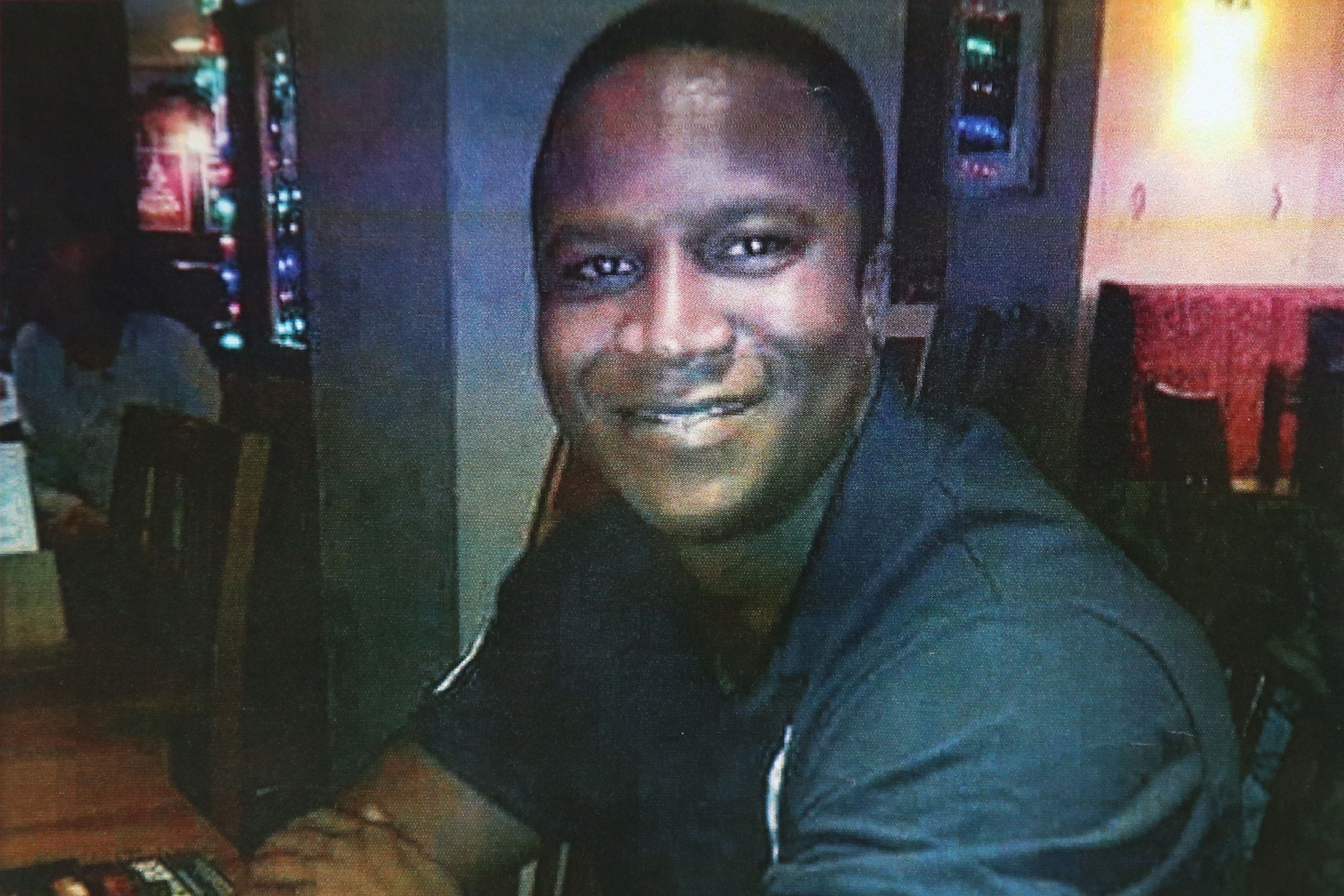Sheku Bayoh detectives forced ‘vulnerable’ family to leave home, inquiry told
Detectives cited ‘common law’ powers to justify not obtaining a warrant to search the family home of one of Mr Bayoh’s friends.

Detectives investigating the death of Sheku Bayoh “forced” a “vulnerable” family to leave their home without consent, an inquiry has heard.
Mr Bayoh, 31, died after being restrained by police in Kirkcaldy, Fife, on the morning of May 3 2015, having taken Class A drugs hours before with friends.
The Sheku Bayoh Inquiry is investigating the circumstances of his death, how police dealt with the aftermath, the subsequent investigation, and whether race was a factor.
Officers went to the home of Mr Bayoh’s friend Zahid Saeed and spoke to his sister, Saadia Rashid, who was caring for her elderly mother and paraplegic brother, as well as two young children, including a baby who was being breastfed.
Mrs Rashid told the inquiry she repeatedly insisted police obtain a warrant but was told “they didn’t need one”, and the family had to leave the house so it could be searched.
She said a plain-clothes officer “forced himself into the house” after intimidating her and the family were “forced” to leave and felt like “criminals with no rights”.
Mrs Rashid added they felt “vulnerable and victimised”, and were so rushed she forgot a breast pump and medication.
Two detectives were sent from Levenmouth, Fife, to “explain and persuade and reassure the occupants” after uniformed officers, the inquiry heard.
At that stage because the family were so unhappy, we were expecting a police complaint to come in
Giving evidence, Detective Constable Gordon Miller, 54, said there was no point in him asking consent due to the family’s obvious unhappiness, and officers anticipated a complaint would be lodged.
In a statement, he said he told Mrs Rashid: “Sometimes you do not need warrants, because it was a serious incident that had happened at that time the property had been seized, we’ve got to protect the forensic integrity of it.”
Mr Miller said: “She did ask for a warrant, and I know it says there that we were pushy, abrupt and quite rude. At that stage because the family were so unhappy, we were expecting a police complaint to come in.
“We certainly weren’t rude or pushy in any shape or form. In these situations where people are likely to complain, you’re careful.”
He insisted he was not the plain-clothes officer who was “banging on the door” described by Mrs Rashid.
The detective said he followed a “lawful order” from the senior investigating officer “to protect the forensic integrity of it, so if there was drugs within the property it couldn’t be disposed of”, citing common law powers.
He said a warrant could be sought retrospectively, but could not explain why some senior colleagues said the family had consented.
Mr Miller said: “I don’t know why they thought consent had been given, it would have been pointless asking, we had fed back that the family were quite unhappy about having to leave the address.
“Why they’ve thought they were consenting to a search, you would have to ask them that.”
Police deemed the property to be a “secondary crime scene” and “presumed it would be drugs or a weapon or something”, the inquiry heard.
Mr Miller said: “We haven’t seized a property from witnesses before or since, especially a secondary crime scene. As far as I was concerned, the property had already been seized by the officers who were there. We went along to explain the situation. It was quite clear the family were unhappy to leave the property.”
When asked what steps he took to ensure the family knew they did not have to consent to the search, Mr Miller said: “I don’t recall that I took any steps.”
He added: “They weren’t consenting as such, they were begrudgingly leaving, they weren’t happy to leave.”
Mr Miller said he recalled a householder being threatened with arrest if he attempted to enter.
When asked what authority he had to “restrain someone from entering the house”, Mr Miller said: “Technically, if it’s his household, there’s none to stop him coming in.”
He added: “We’ve seized that property under common law and we’re trying to protect it as best we can.”
Giving evidence, he said the family should have been given more explanation and told of their rights.
He conceded there wasn’t “authority” to “force” a family to leave.
Mr Miller said: “Not particularly that we’re aware of. If they refused to leave, we would have fed that back in, it would have been at that stage that we would have looked at getting a warrant.”
When Mrs Rashid’s statement describing her feelings of being “vulnerable and victimised” was read, Mr Miller disputed that the family felt criminalised, but acknowledged they felt victimised.
He said: “I’m sorry if she felt like that. It wasn’t our intention to make people feel like that.”
Police received a complaint that the family were “thrown out into the street”, the inquiry heard.
Officers rejected requests that the family could remain in one room of the adapted house and were criticised for lacking “compassion” by Mrs Rashid, who had recently had surgery along with her baby.
She said she believed they were treated differently “because we were Pakistani and Muslim”, and she “didn’t feel safe”, as a male officer stood outside her door as she got changed.
Giving evidence, Mr Miller said that by 7pm no alternative accommodation had been found for the family.
He also said that he learnt more about Islam from volunteering with Scouts than from police training.
A complaint was lodged on May 14, from Fife Islamic Centre, which said: “The people living in the house were thrown out of the house, (including a seven-week old baby and a disabled person), into the street without any explanation.”
The inquiry, before Lord Bracadale in Edinburgh, continues.
Bookmark popover
Removed from bookmarks